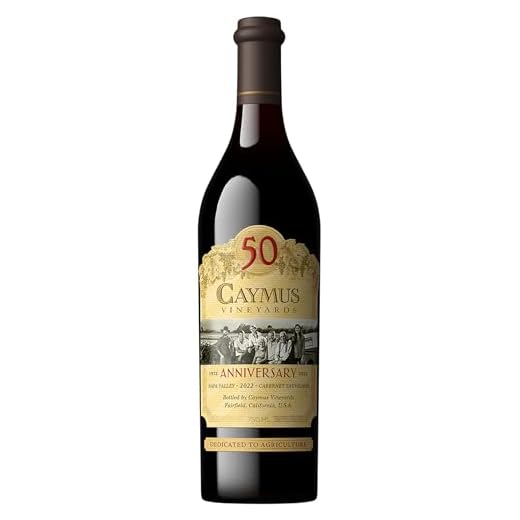



Including a glass of red wine in your daily routine may offer several advantages for your health. Research indicates that moderate consumption can contribute to cardiovascular health, thanks to the presence of antioxidants like resveratrol. These compounds are linked to improved heart function and lower levels of bad cholesterol.
Additionally, studies suggest that red wine may enhance cognitive function and reduce the risk of neurodegenerative diseases. The polyphenols found in these beverages are believed to protect brain cells from damage, promoting longevity and mental clarity.
Furthermore, enjoying a moderate amount may positively impact mood and social interactions, fostering a sense of well-being. This could be attributed to the compounds that stimulate the release of endorphins, enhancing your overall enjoyment of life.
While it’s crucial to practice moderation, incorporating this beverage into your lifestyle can be both pleasurable and beneficial. Always consider consulting with a healthcare professional regarding any dietary changes.
Is Cabernet Sauvignon Beneficial?
Moderate consumption of this bold red varietal can contribute positively to cardiovascular health. Rich in antioxidants, particularly resveratrol, it may help in reducing inflammation and improving heart function. Research indicates that a glass or two per day may increase good cholesterol levels while lowering the risk of heart disease.
The presence of flavonoids in this wine type has been associated with better blood circulation and lower blood pressure. These compounds can promote overall vascular health, making it a potentially wise choice for those looking to enhance their wellbeing.
For individuals monitoring their weight, opting for a small serving can satisfy cravings without excessive calorie intake. This wine pairs well with a variety of dishes, enhancing both flavor and enjoyment without needing to overindulge.
However, moderation is key. Excessive intake can lead to negative health effects, counteracting the benefits. Balancing wine consumption with a healthy lifestyle is essential to maximize its positive attributes.
Nutritional Profile of Cabernet Sauvignon
Rich in antioxidants, this varietal offers notable health benefits, including support for cardiovascular health. A standard serving contains approximately 125 calories, primarily from the alcohol and residual sugars. It is low in carbohydrates, making it suitable for those monitoring their intake.
Antioxidants and Polyphenols
High levels of polyphenols, particularly resveratrol, contribute to its protective effects against oxidative stress. These compounds may reduce inflammation and help maintain healthy blood pressure levels. Additionally, flavonoids found in this type of wine are linked to improved heart health.
Mineral Content
This wine contains trace amounts of essential minerals such as potassium, magnesium, and calcium, which support various bodily functions. Moderation is key; enjoying a glass may provide these benefits without excessive calorie consumption.
In summary, this varietal can be a flavorful addition to a balanced lifestyle, offering a unique combination of taste and potential wellness advantages.
Health Benefits of Moderate Consumption
Engaging in moderate drinking of this red wine variety may yield several health advantages. Studies suggest that it can enhance heart health by increasing levels of high-density lipoprotein (HDL) cholesterol and providing antioxidants that combat oxidative stress.
Cardiovascular Impact
The polyphenols present in this wine type, particularly resveratrol, have been linked to improved vascular function and may aid in preventing blood clots. This effect can contribute to a lower risk of heart disease, making it a potentially beneficial choice for those who enjoy wine in moderation.
Antioxidant Properties
Regular, moderate consumption of this varietal offers a source of antioxidants that can help protect cells from damage caused by free radicals. This protection may reduce the likelihood of chronic diseases and promote overall wellness. Remember, balance is key; excessive intake can negate these benefits.
For those interested in capturing life’s moments while enjoying a glass, consider a best compact digital camera with wide angle lens to document your experiences.
Potential Risks of Drinking Cabernet Sauvignon
Excessive intake of this red varietal can lead to various health concerns. It’s essential to understand the potential drawbacks associated with its consumption.
Alcohol-Related Issues
- Increased likelihood of addiction: Regular heavy drinking can lead to dependence.
- Risk of liver damage: Chronic consumption may strain liver function and contribute to conditions like fatty liver disease.
- Cardiovascular effects: Overindulgence can elevate blood pressure and increase the risk of heart disease.
Caloric and Sugar Content
- High caloric intake: One serving can contain around 120-130 calories, contributing to weight gain if consumed excessively.
- Potential sugar content: Some varieties may have higher residual sugars, which could impact blood sugar levels.
Always consider personal health circumstances and consult with a healthcare professional if uncertain about the implications of consuming this type of wine. Moderation remains key to enjoying it without adverse effects.
Impact on Heart Health
Moderate intake of red wine, particularly varieties rich in polyphenols, may contribute positively to cardiovascular wellness. The presence of resveratrol in red wines has been linked to improved endothelial function, which plays a crucial role in vascular health. Regular consumption in moderation can help maintain healthy blood pressure levels and potentially reduce the risk of heart disease.
Research indicates that the antioxidants found in red wine can protect against oxidative stress, a factor that contributes to atherosclerosis. A study noted that individuals who consume approximately one to two glasses daily may experience lower cholesterol levels and improved circulation.
To maximize benefits, pairing red wine with a balanced diet rich in fruits, vegetables, and whole grains enhances its heart-healthy properties. It’s essential to remain mindful of serving sizes; moderation is key to reaping potential advantages without incurring adverse effects.
Consultation with a healthcare provider is advisable for those with existing health conditions or those taking medications that may interact with alcohol. Individual responses can vary, so personalized guidance is important.
Antioxidants in Cabernet Sauvignon and Their Effects
The presence of antioxidants in this varietal plays a significant role in health benefits. Key compounds include resveratrol, flavonoids, and tannins, which contribute to various positive effects on the body.
Research indicates that resveratrol is linked to improved cardiovascular health. It may reduce inflammation and prevent oxidative stress, protecting blood vessels and enhancing circulation.
Flavonoids found in this wine variety are known for their ability to combat free radicals, potentially lowering the risk of chronic diseases. These compounds are also associated with anti-inflammatory properties, which can be beneficial for overall well-being.
Tannins not only contribute to the taste profile but also exhibit antioxidant properties, supporting heart health by possibly lowering blood pressure and cholesterol levels.
To maximize the benefits of these antioxidants, moderate consumption is recommended. Enjoying a glass with meals can enhance the absorption of these beneficial compounds, particularly when paired with antioxidant-rich foods.
Incorporating this varietal into a balanced lifestyle can be advantageous, but moderation remains key to reaping the health benefits while minimizing risks associated with excessive alcohol intake.
Pairing Cabernet Sauvignon with a Healthy Diet
To enhance the benefits of this red varietal, consider pairing it with nutrient-dense foods. Lean proteins such as grilled chicken or turkey complement its robust character while keeping calorie counts in check. Vegetables rich in fiber, such as steamed broccoli or roasted Brussels sprouts, provide essential nutrients and balance the wine’s tannins.
Whole grains like quinoa or brown rice can serve as excellent accompaniments, offering complex carbohydrates and additional fiber. These foods not only round out a meal but also help maintain stable energy levels and support digestive health.
For those looking to incorporate healthy fats, avocados or nuts can create a delightful contrast to the wine’s structure, enriching the palate without excessive calories. Opt for a small serving of dark chocolate as a dessert; its richness pairs beautifully with the wine’s depth while providing antioxidants.
When crafting meals, focus on fresh herbs and spices to enhance flavors without adding sugar or excessive salt. Rosemary, thyme, and garlic can elevate dishes, making them more appealing while contributing to overall health.
Incorporating these food choices into your meals can create a harmonious balance that allows enjoyment of this varietal while adhering to a nutritious lifestyle. Being mindful of portion sizes is key; moderation remains essential to reap the advantages without overindulgence.
Recommendations for Responsible Drinking
Limit intake to one to two servings per day for men and one serving for women. This approach minimizes health risks while allowing enjoyment of the beverage’s qualities.
Hydration Matters
Stay hydrated by drinking water between servings. This practice helps mitigate the dehydrating effects of alcohol, promoting overall wellness.
Mindful Pairing
Incorporate meals rich in nutrients when consuming wine. A balanced diet enhances the experience and adds health benefits. Consider the following combinations:
| Food Pairing | Nutritional Benefit |
|---|---|
| Grilled salmon | High in omega-3 fatty acids |
| Leafy greens | Rich in vitamins and minerals |
| Dark chocolate | Contains antioxidants |
| Whole grain bread | Good source of fiber |
Consider personal health conditions and consult with healthcare professionals if uncertain about consumption limits. Prioritize enjoyment while maintaining a balanced lifestyle.
FAQ:
Is drinking Cabernet Sauvignon beneficial for heart health?
Cabernet Sauvignon contains antioxidants, such as resveratrol, that may support heart health. Research suggests that moderate consumption of red wine, including Cabernet Sauvignon, could help reduce the risk of heart disease by improving cholesterol levels and promoting healthy blood vessel function. However, moderation is key, as excessive alcohol consumption can lead to adverse health effects.
What are the health benefits associated with Cabernet Sauvignon?
Cabernet Sauvignon is rich in antioxidants, which can help combat oxidative stress in the body. The presence of resveratrol has been linked to various health benefits, such as improved cardiovascular health, better blood sugar control, and potential anti-inflammatory effects. Additionally, it may have neuroprotective properties that could benefit brain health. Nevertheless, it’s important to balance wine consumption with a healthy lifestyle to fully enjoy these benefits.
Can Cabernet Sauvignon contribute to weight gain?
Like any alcoholic beverage, Cabernet Sauvignon contains calories, which can contribute to weight gain if consumed in excess. A standard glass of red wine typically contains around 120-130 calories. If you enjoy wine, it’s advisable to keep track of your overall calorie intake and maintain a balanced diet to prevent unwanted weight gain.
Is it safe to drink Cabernet Sauvignon if I have certain health conditions?
If you have specific health conditions, such as liver disease, certain types of cancer, or a history of alcohol abuse, it is essential to consult your healthcare provider before consuming Cabernet Sauvignon or any alcoholic beverages. While moderate consumption may be safe for many, individual health circumstances can significantly influence the effects of alcohol on your body.











